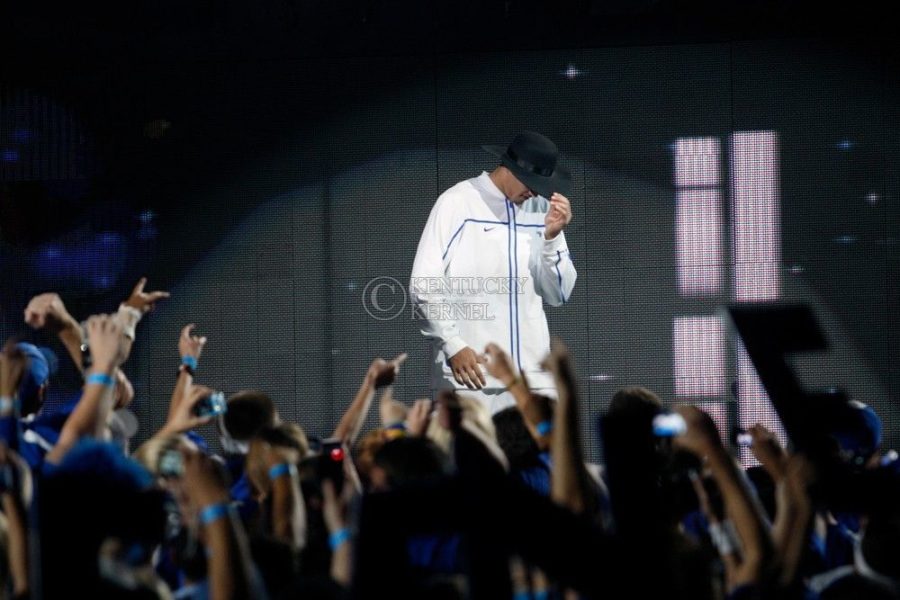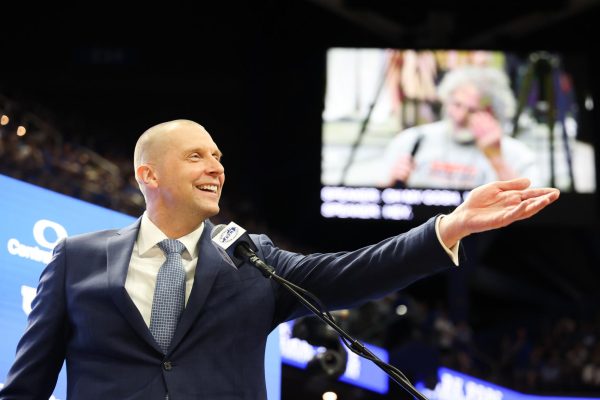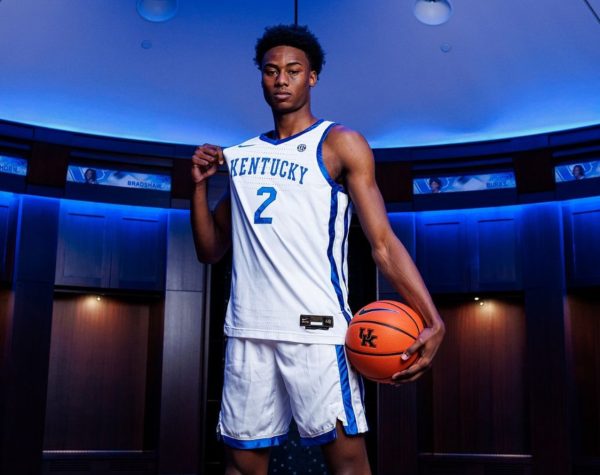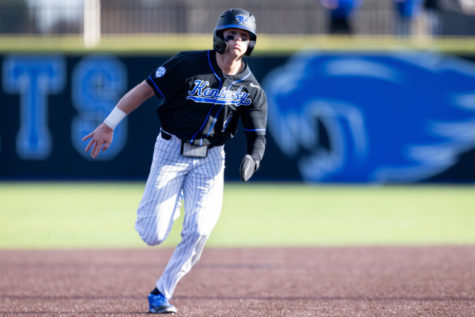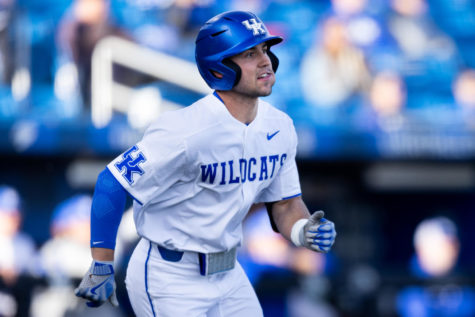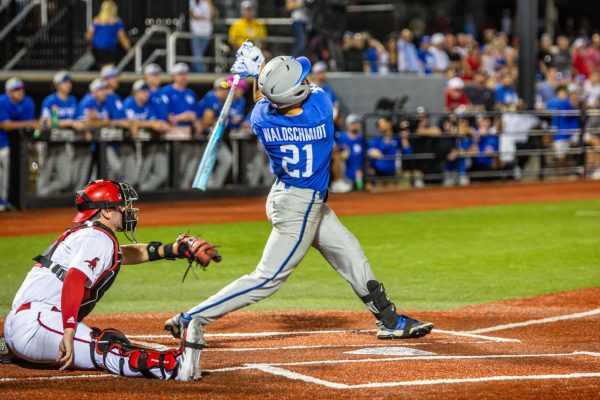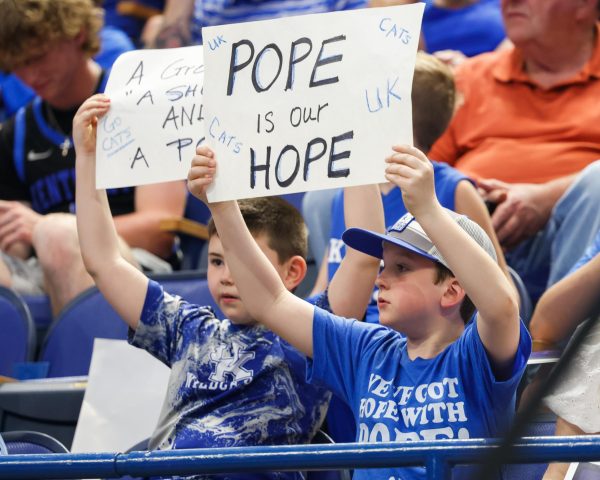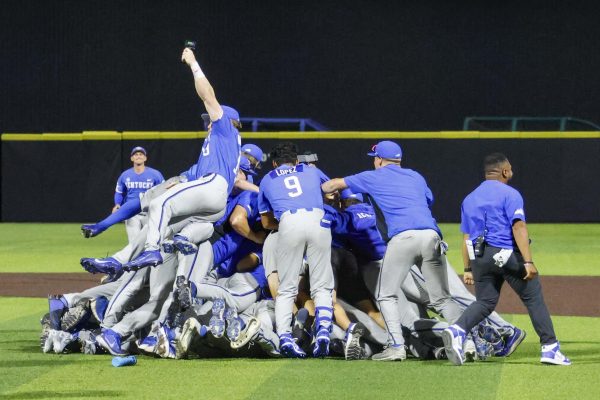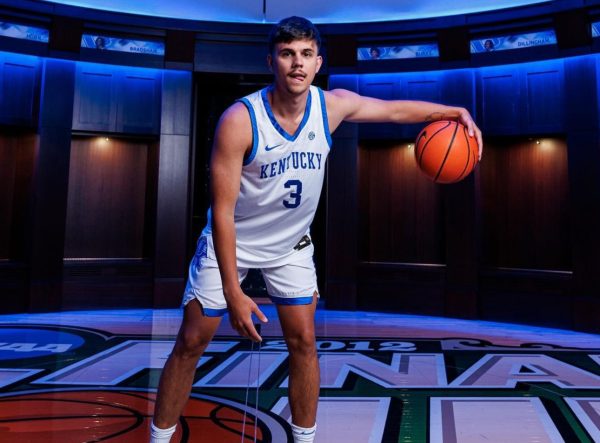Saying Goodbye: Enes Kanter
May 11, 2011
Enes Kanter sat in his customary position on the bench, between the players and the coaches, almost as if he was in basketball roster limbo. In his hands rested an empty clipboard, oddly symbolic of his situation. He wasn’t going to play in this game, UK’s Southeastern Conference opener against Georgia, but that was no surprise. He hadn’t been able to play in any of UK’s previous games.
This game was a little different, though. It was his first time he had been allowed to travel with the team, but only because days earlier he had been ruled permanently ineligible. What should have been a positive experience — traveling on the road for an SEC game with his UK family — was an entirely negative one.
“It was the worst I’ve ever seen him,” said UK Athletics’ DeWayne Peevy the week after the game.
Kanter didn’t make many more trips with the team. And if that Georgia trip was the worst, it didn’t sound like it got much better being at home. “I cry when I watch the games,” Kanter told Yahoo! Sports in March.
Oddly, the month of March altered his lasting perception. Those “What if” feelings, so prominently expressed early in the year, diminished once UK made the Final Four. While UK could have theoretically won the title with Kanter, it also could have lost in the second round. The season ended up being too much of a success to truly bemoan Kanter’s loss.
Still, he can be credited for a decent portion of it. He played and instructed the big men, primarily Josh Harrellson, and gave them the best scout team center a team could ever imagine. Before the Ohio State game, as Harrellson was set to go up against Jared Sullinger — a player Kanter had absolutely torched a year earlier at the Nike Hoops Summit — Kanter gave advice to the player on which UK’s chances of victory largely hinged. On the bench, Kanter was able to be another set of eyes watching the game. He didn’t really do all that much coaching — he kept a lot of stats and never transitioned to wearing a suit, instead opting for warmups — but at times he would scribble down some basic things like “Brandon Knight, good pass,” and give his teammates pointers.
Even though he played a valuable role in practice, Kanter felt constricted, restrained. Why would he want to play basketball without a score being kept for a year? His desire to see meaningful action was evident in practice. After the whistle blew, Kanter would pull a Kevin Garnett and snag the ball out of the air. “That’s his move in practice,” Jarrod Polson told me in February. “I guess he hates to see the other team score.” It must have been infinitely worse watching teams score on UK in real games and not being able to do a thing about it.
Kanter was the ultimate representation of negative space. The biggest storyline of those early season games was his absence, rather than anything the guys actually playing were accomplishing. Countless stories were published — and highly read — about how there was no news regarding the Kanter news. In the UK locker room, Kanter’s locker was located at the most prominent and central position, with Brandon Knight to his right and Terrence Jones to his left. It was always empty, but the name tag was never taken down. Even his No. 0 jersey was as much a non-number as it was a number.
Now he moves on to the NBA, where he was set on an unalterable path after the NCAA decision. He will do just fine — a top-10 pick, and talented enough to fit into a variety of systems. I watched him in practice one time, and while he showed an aversion to passing (perhaps on coaches’ commands for scouting purposes), his post skills were elite. His father said earlier in the year Kanter would have come back if he was still eligible. It’s a noble thought, but ultimately we have no idea what would have occurred had he been made to make an actual decision. Regardless, Kanter is one of two departing UK players who didn’t have the option of returning, and so he leaves UK leaving only footprints behind for us to remember him by.
Kanter transitioned from being a martyr at the beginning of the year, felled by the NCAA’s injustice, to an invisible myth by the end of the year. As the season wore on, Kanter largely receded into the background. His public appearances were rare. The Undertaker entrance at Big Blue Madness; a single round of media interviews after the season was over; a single UK Athletics play — that of a first pitch at a baseball game; and a smattering of YouTube clips that made you want to press pause and never look again at what might have been. “He’s just real goofy off the court,” Polson said, but, regrettably, fans weren’t able to really see his personality. It’s easy to construct a persona for him when we’ve barely heard him talk and never seen him lose, and maybe that’s for the better. Because of it, he will go down with one of the most unique and memorable legacies in UK history.









































































































































